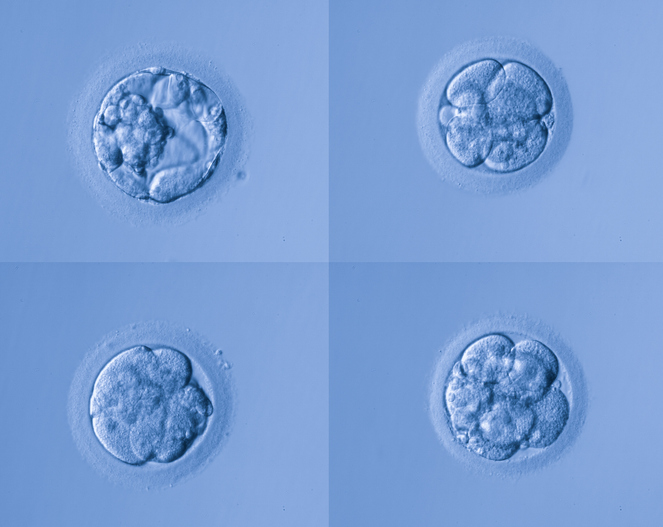.png)
.png)
Wanting to donate your eggs to help others grow their family is an incredible act to do for another person or couple. And something that should be fully researched, understood and not be taken lightly. Aside from the physical and medical side effects, you should also be aware of any potential emotional and psychological and legal ramifications of donating your eggs.
How egg donation works
Each egg donation requires psychological and medical screening to determine if certain requirements are met in order to become an egg donor. The actual process does not begin until you are matched and legal paperwork has been completed. Once that happens, you will attend approximately six to eight visits to the medical clinic over a two-week period. You will typically be getting ultrasounds to check how many eggs are being produced and how you are reacting to the hormones. These hormones will be self-injected several times a day for seven to 10 days. These hormone injections are given using a small needle under the skin of your abdomen. The hormone injections stimulate your ovaries to enlarge and produce eggs, more than are typically produced during your natural cycle which is typically one egg per cycle.
On the day of your retrieval, you will be put under sedation. Using an ultrasound guided needle your doctor will vaginally insert the needle into each mature follicle to retrieve each egg. Day of and day after retrieval you may need to take time off from school or work to recover. But because the process is minimally invasive, you should be back to normal within a few days.
Read more in How Does Egg Donation Work?
Biological vs. legal parenthood
Because you are donating a piece of your genetic material, it is important for you to understand that you are biologically related to any child that is born from your eggs. And it is important for you to understand that your future children will be half siblings with the children born from the eggs that you donate.
However, being a biological parent is different from legal parenthood. You will not have any legal responsibilities for the child born from your donated eggs because you will sign a legal document surrendering any and all parental rights.
Legal parents have a family relationship to the child by law. This relationship does not need to be formed by blood or DNA, for example in the case of an adopted child. Even though the resulting child is very much the child of the recipients, it’s important to understand that you are genetically related to that child. If down the road you did a DNA test and the child did a DNA test, the relationship would read “biological mother.”
Type of relationships
Depending on the type of relationship you have with the recipients of your eggs, you can have a relationship with the child born from your donated eggs, if you and the recipients agree to that type of relationship. The different types of relationships include, disclosed, undisclosed and open ID. In a disclosed donation, you will exchange contact information with the recipients and communicate directly. This does not mean you will have an ongoing relationship into the future. It just means that both parties will have each other's names and contact information.
In an undisclosed donation you will not exchange contact information with the recipients and will not communicate directly. Finally, with an open ID you again do not exchange contact information, but you legally agree to have your identity disclosed to the child born from your donation once the child reaches a certain age, typically at 18 years. So, once the child reaches the agreed upon age, they can contact the clinic, bank or attorney and will be able to contact you.
Conclusion
Women are born with all of their eggs. And as time goes on, the quality and quantity dramatically declines, specifically after the age of 35. It can be devastating when a woman is ready to start a family, only to find out that it’s too late. So the only way a family will ever be formed is by having access to donor eggs. Same is true for gay couples or single men. So deciding to donate your eggs can completely change the trajectory of someone’s life; from dreaming of being a parent to actually being a parent. As a donor, it is your job to be fully informed of all the potential legal, medical, emotional and psychological side effects of donating your eggs. Ask all the questions until you feel fully ready to donate.
Egg donation with Cofertility
At Cofertility, we are striving to be the best place to be an egg donor (or what we call, a Split Member). We offer a supportive and transparent process that empowers donors to make informed decisions about their egg donation journey.
With our innovative approach, donors get to keep half of the eggs retrieved, plus:
- Free storage of their own eggs in cryopreservation for up to 10 years
- Coverage of all medical costs for the egg donation process
- Connection to the Cofertility community for support all along the way and after too
- The ability to work with the intended parents to decide together what your relationship will look like
If giving your eggs to intended parents sounds like something you would like to do, you may be able to qualify for the free egg freezing process and have your donation process covered too.
Find out more about Cofertility, and take our quiz to see if you qualify for Split!
We believe that every donor deserves to have a positive and empowering experience, and we are committed to making that a reality. That’s why Cofertility was named one of the Best Egg Donor Programs by Egg Donor Connect.





.png)




